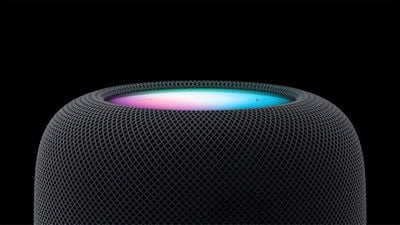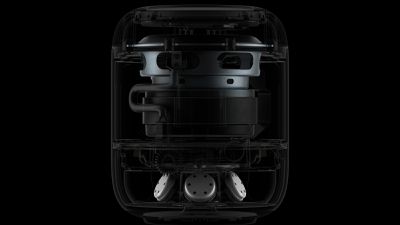One of the first hands-on experiences with the new second-generation HomePod has offered new details on the latest smart speaker’s quality and performance compared to the original HomePod launched in 2018.

TechRadar‘s Lance Ulanoff had the chance to listen to the new HomePod during a listening session by Apple for members of the media and shared his experience with the speaker.
According to Ulanoff, the new HomePod handles the separation of vocals, instruments, and tracks with “excellent” precision when listening to songs like “Everybody” by Ingrid Michaelson. “What I noticed immediately is, from a single HomePod 2, the excellent separation of acoustic instruments and her voice. I could clearly pick out a tambourine, guitar, and drum kit as distinct elements in the air,” Ulanoff said.
One challenge often faced by typical speakers is that the louder the volume, the more distorted the audio can become. Ulanoff said that even with the volume at 90%, the new HomePod delivers “aural clarity” with no distortion. According to Ulanoff, the new HomePod has a sensor built into its design that can measure the internal temperature of the system and, if under ideal conditions, can “crank up the power even further.”
Like the original HomePod, the new model has spatial awareness, but with better performance thanks to advanced computational audio and improved hardware, like the S7 chip. With spatial audio, the new HomePod, either alone or in a stereo pair, can offer an immersive 360-degree listening experience.
One of the interesting things about the new HomePod 2 is its spatial awareness. As I listened to music from a single and then stereo pair of HomePod 2 devices, I noticed how the sounds often didn’t seem to be coming directly from the HomePods (thanks Spatial Audio!). Some were coming from the left, others from the right, and some (usually, but not always, vocals) from dead center. The most interesting sounds though, were the ones that almost seemed to wash over me; they were bouncing off the back wall (maybe a foot away from the HomePod 2) and then rising and, I’m guessing here, bouncing from the walls to the ceiling to my ears.
Ulanoff called a stereo pair of new HomePods “impressive,” adding that certain songs felt as if they were “coming from behind and in front of me. The sound stage was so wide and deep that it didn’t matter where I stood in the room.” It’s worth noting that first-generation HomePods can’t be used in a stereo pair with the newer model, according to Apple.

Internals of the new second-generation HomePod
Visually, the new HomePod looks a lot like the original smart speaker, but with a larger backlit touch interface and a slightly shorter design. Internally, the new model has two fewer tweeters and microphones than the original HomePod, which was probably a cost-cutting decision. The tweeters and microphones are “tilted up to avoid any audio being distorted by reflections from whatever surface the speaker is sitting on,” according to Ulanoff.
Like the original HomePod, the new speaker can quickly analyze its placement in a room to adjust the audio accordingly in just 20 seconds, thanks to a combination of the four microphones and the S7 chip. A built-in accelerometer also detects movement to allow the speaker to readjust its room analysis.
The new HomePod comes around two years after Apple discontinued its original smart speaker. The first-generation HomePod failed to be the market success Apple was hoping for, because of its high $349 price at launch and limited integration with third-party services. We’ll get a closer look at the new HomePod when media reviews are published in the days leading up to its launch on Friday, February 3.
.